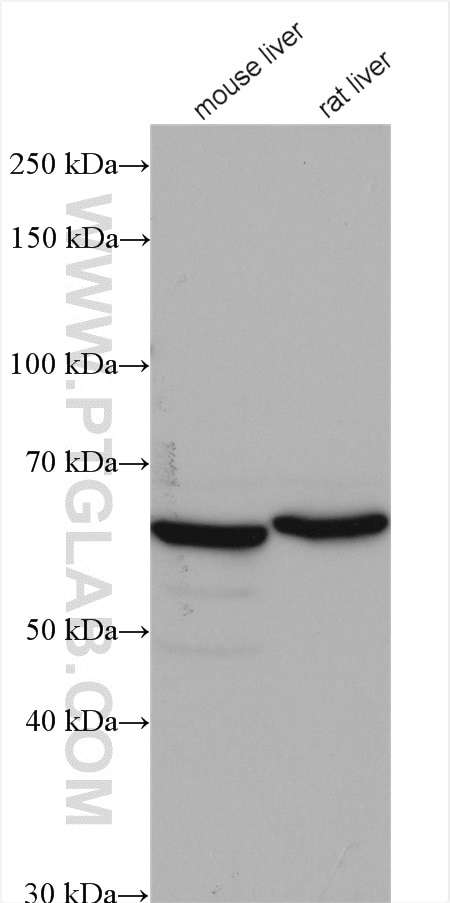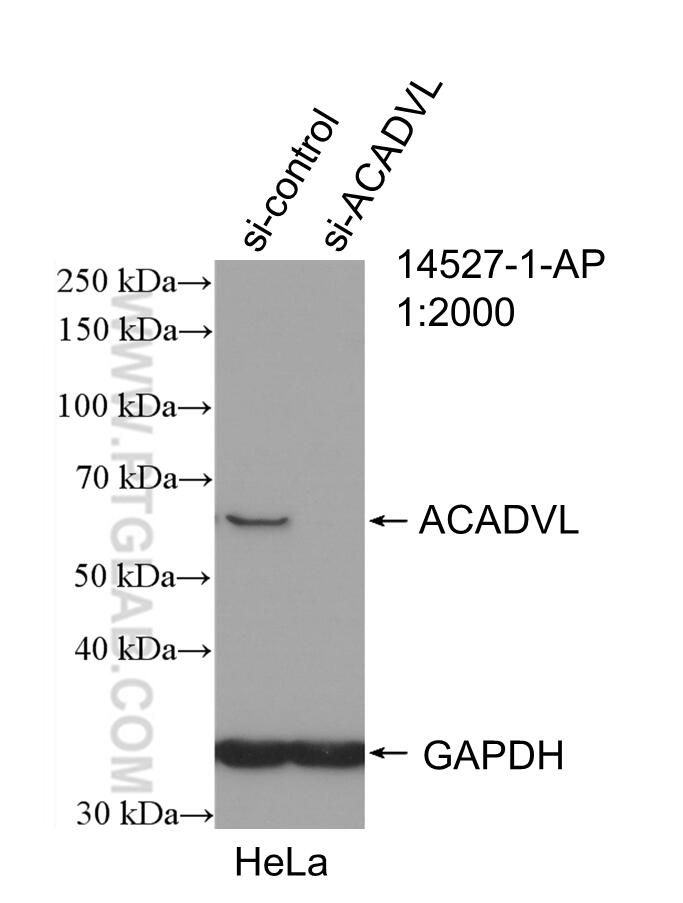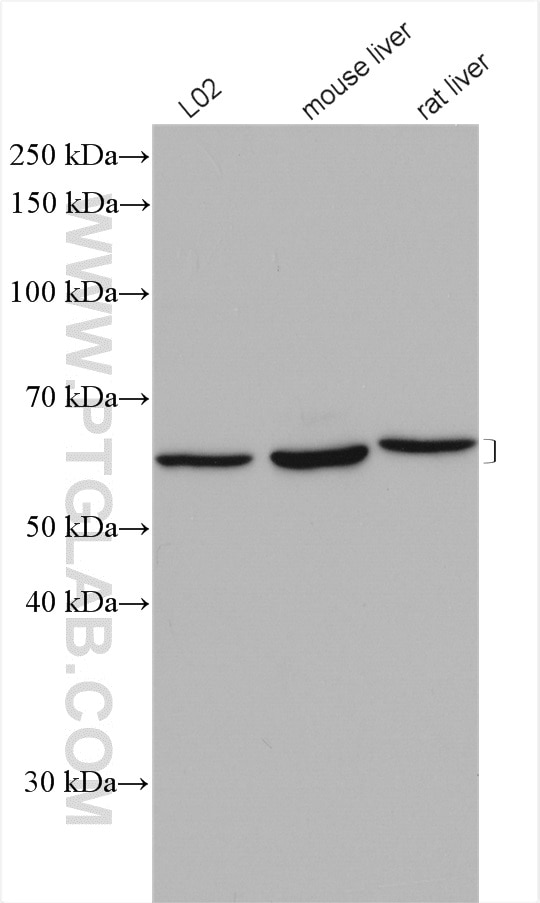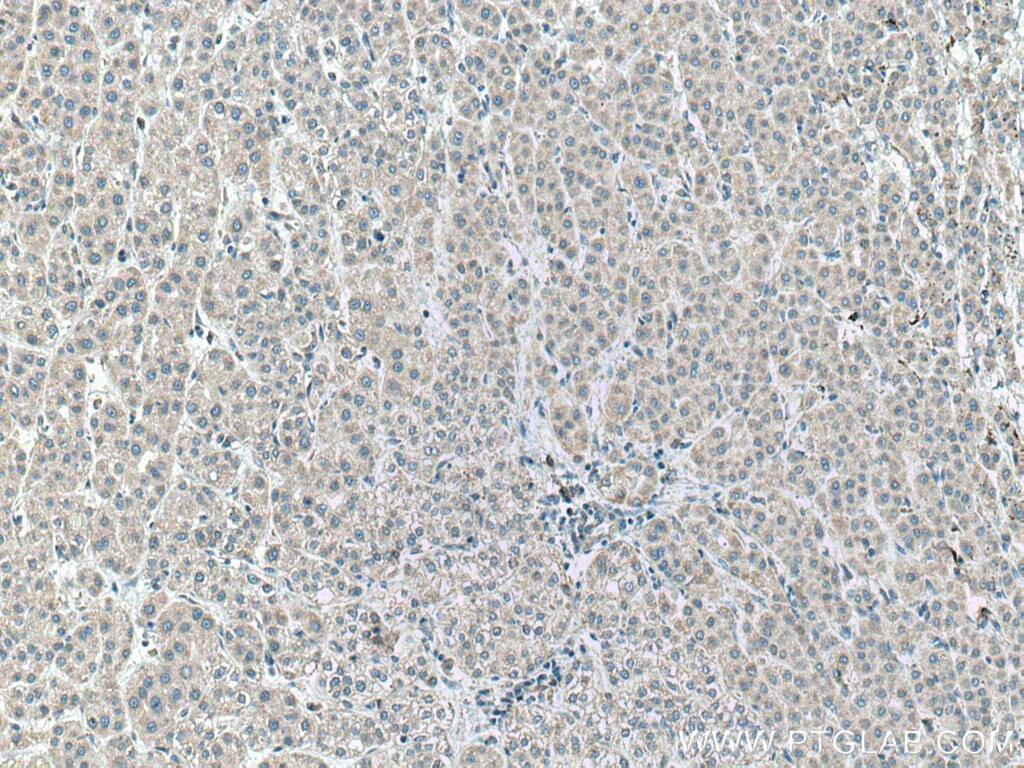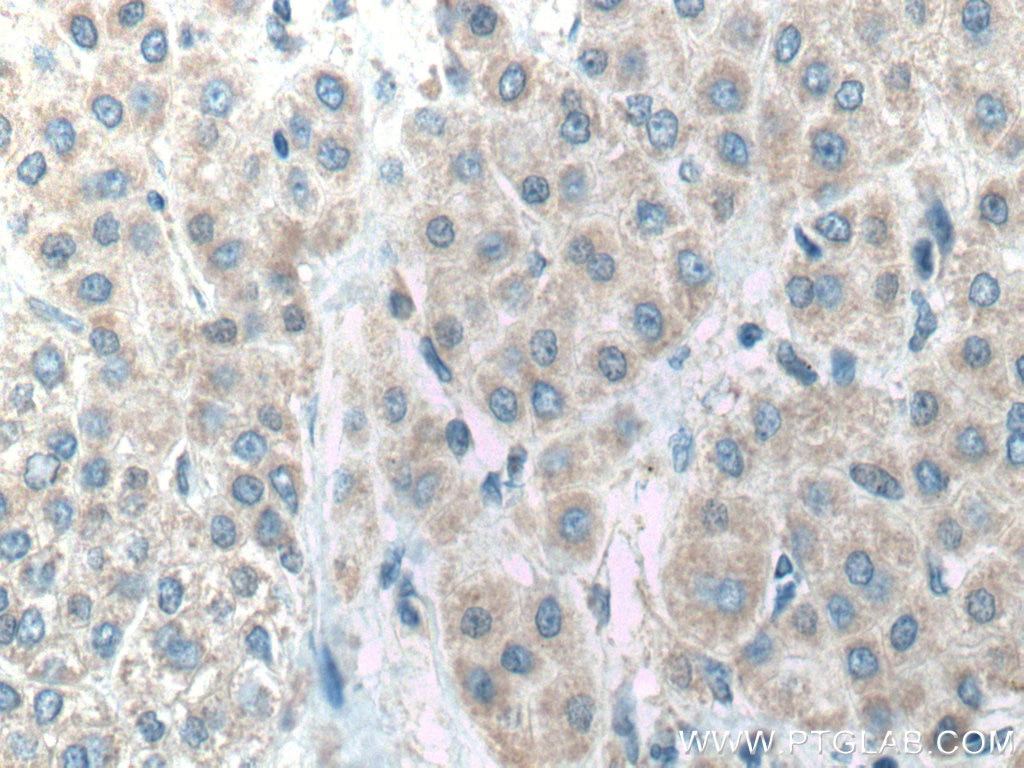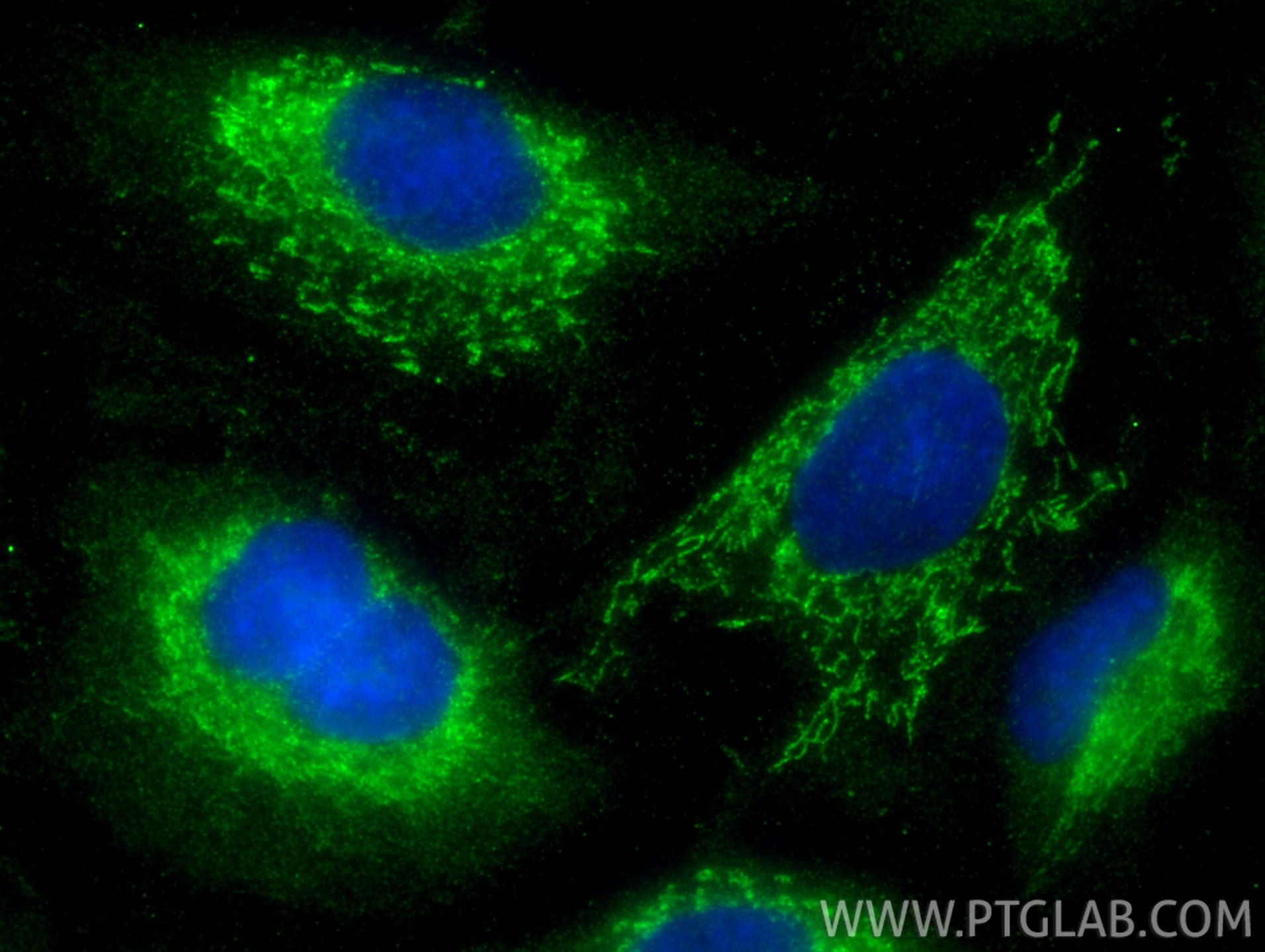Validation Data Gallery
Tested Applications
| Positive WB detected in | mouse liver tissue, L02 cells, HeLa cells, rat liver tissue |
| Positive IHC detected in | human liver cancer tissue Note: suggested antigen retrieval with TE buffer pH 9.0; (*) Alternatively, antigen retrieval may be performed with citrate buffer pH 6.0 |
| Positive IF/ICC detected in | A549 cells |
Recommended dilution
| Application | Dilution |
|---|---|
| Western Blot (WB) | WB : 1:1000-1:4000 |
| Immunohistochemistry (IHC) | IHC : 1:100-1:400 |
| Immunofluorescence (IF)/ICC | IF/ICC : 1:50-1:500 |
| It is recommended that this reagent should be titrated in each testing system to obtain optimal results. | |
| Sample-dependent, Check data in validation data gallery. | |
Published Applications
| WB | See 14 publications below |
| IHC | See 1 publications below |
| IF | See 1 publications below |
| IP | See 1 publications below |
| CoIP | See 1 publications below |
Product Information
14527-1-AP targets ACADVL in WB, IHC, IF/ICC, IP, CoIP, ELISA applications and shows reactivity with human, mouse, rat samples.
| Tested Reactivity | human, mouse, rat |
| Cited Reactivity | human, mouse, rat |
| Host / Isotype | Rabbit / IgG |
| Class | Polyclonal |
| Type | Antibody |
| Immunogen |
CatNo: Ag6016 Product name: Recombinant human ACADVL protein Source: e coli.-derived, T-HIS Tag: 6*His Domain: 312-655 aa of BC012912 Sequence: FDGVRVPSENVLGEVGSGFKVAMHILNNGRFGMAAALAGTMRGIIAKAVDHATNRTQFGEKIHNFGLIQEKLARMVMLQYVTESMAYMVSANMDQGATDFQIEAAISKIFGSEAAWKVTDECIQIMGGMGFMKEPGVERVLRDLRIFRIFEGTNDILRLFVALQGCMDKGKELSGLGSALKNPFGNAGLLLGEAGKQLRRRAGLGSGLSLSGLVHPELSRSGELAVRALEQFATVVEAKLIKHKKGIVNEQFLLQRLADGAIDLYAMVVVLSRASRSLSEGHPTAQHEKMLCDTWCIEAAARIREGMAALQSDPWQQELYRNFKSISKALVERGGVVTSNPLGF 相同性解析による交差性が予測される生物種 |
| Full Name | acyl-Coenzyme A dehydrogenase, very long chain |
| Calculated molecular weight | 70 kDa |
| Observed molecular weight | 66-73 kDa |
| GenBank accession number | BC012912 |
| Gene Symbol | ACADVL |
| Gene ID (NCBI) | 37 |
| RRID | AB_2288885 |
| Conjugate | Unconjugated |
| Form | |
| Form | Liquid |
| Purification Method | Antigen affinity purification |
| UNIPROT ID | P49748 |
| Storage Buffer | PBS with 0.02% sodium azide and 50% glycerol{{ptg:BufferTemp}}7.3 |
| Storage Conditions | Store at -20°C. Stable for one year after shipment. Aliquoting is unnecessary for -20oC storage. |
Background Information
Very long-chain acyl-CoA dehydrogenase (VLCAD) is one of four flavoproteins which catalyze the initial step of the mitochondrial b-oxidation spiral. It belongs to the acyl-CoA dehydrogenase family and is a homodimer of a 71-kDa polypeptide which contains 2 mol of FAD/mol of enzyme. The molecular mass of the nondenatured trypsinized VLCAD is 98 kDa, by gel filtration chromatography, indicating that it is a homodimer of the 48 kDa(tryptic digest) polypeptide(PMID:9461620). Defects in ACADVL are the cause of acyl-CoA dehydrogenase very long chain deficiency (ACADVLD). It has 2 isoforms(70 kDa and 68 kDa ) produced by alternative splicing and a transit peptide. This antibody is speicifc to ACADVL.
Protocols
| Product Specific Protocols | |
|---|---|
| IF protocol for ACADVL antibody 14527-1-AP | Download protocol |
| IHC protocol for ACADVL antibody 14527-1-AP | Download protocol |
| WB protocol for ACADVL antibody 14527-1-AP | Download protocol |
| Standard Protocols | |
|---|---|
| Click here to view our Standard Protocols |
Publications
| Species | Application | Title |
|---|---|---|
Oxid Med Cell Longev Mild Hypothermia Attenuates Hepatic Ischemia-Reperfusion Injury through Regulating the JAK2/STAT3-CPT1a-Dependent Fatty Acid β-Oxidation. | ||
Cell Rep HIF-1-Mediated Suppression of Acyl-CoA Dehydrogenases and Fatty Acid Oxidation Is Critical for Cancer Progression. | ||
Front Immunol Impaired Autophagy and Defective T Cell Homeostasis in Mice with T Cell-Specific Deletion of Receptor for Activated C Kinase 1. | ||
Biochim Biophys Acta Succinate accumulation impairs cardiac pyruvate dehydrogenase activity through GRP91-dependent and independent signaling pathways: therapeutic effects of ginsenoside Rb1. | ||

